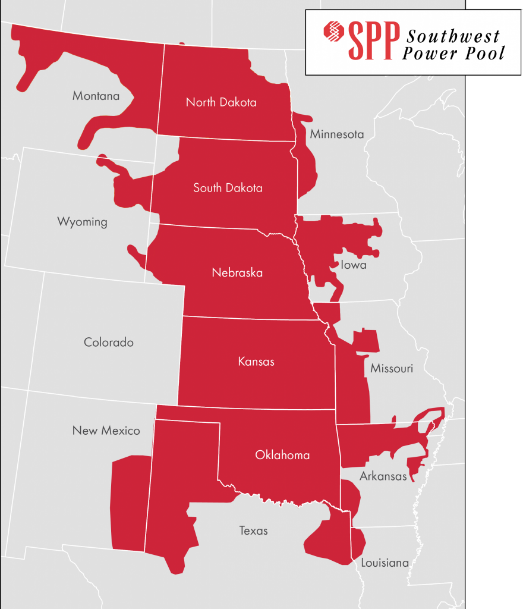As extreme cold weather persists across the 14 states in the Southwest Power Pool’s balancing authority area, electricity use has exceeded available generation. The grid operator declared an Energy Emergency Alert Level Three at 10:08 Central Time on Feb. 15, when it was forced to begin relying on required reserve energy.
After exhausting the available reserve energy SPP has now directed its member utilities to implement controlled interruptions of service to prevent further, more widespread and uncontrolled outages.
"In our history as a grid operator, this is an unprecedented event and marks the first time SPP has ever had to call for controlled interruptions of service," said SPP Executive Vice President and Chief Operating Officer Lanny Nickell. "It’s a last resort that we understand puts a burden on our member utilities and the customers they serve. But it’s a step we’re consciously taking to prevent circumstances from getting worse, which could result in uncontrolled outages of even greater magnitude."
SPP has instructed its member transmission system operators to reduce electricity demand by an amount needed to prevent further uncontrolled outages. Individual utilities will determine how best to curtail their use by the required amount based on their own emergency operating plans. While SPP and its member companies work to restore the regional power grid to full capacity, consumers are urged to reduce electricity use both at home and work.
Victory Electric in southwest Kansas was notified by SPP and Sunflower Electric that rolling outages had begun the morning of Feb. 15, first in Spearville and Wright, then continuing in the Ensign area. The outages are expected to last up to an hour and may happen without warning.
A Sunflower Electric release stated, "Unfortunately, because the controlled power interruptions are not coordinated at the distribution level, Victory Electric cannot predict exactly where and when each controlled interruption will happen, but we do know members should prepare for and expect interruptions to last anywhere from 30 minutes to 1 hour. Controlled service interruptions are a last resort and a step that is only taken when necessary to safeguard the reliability of the regional grid."




